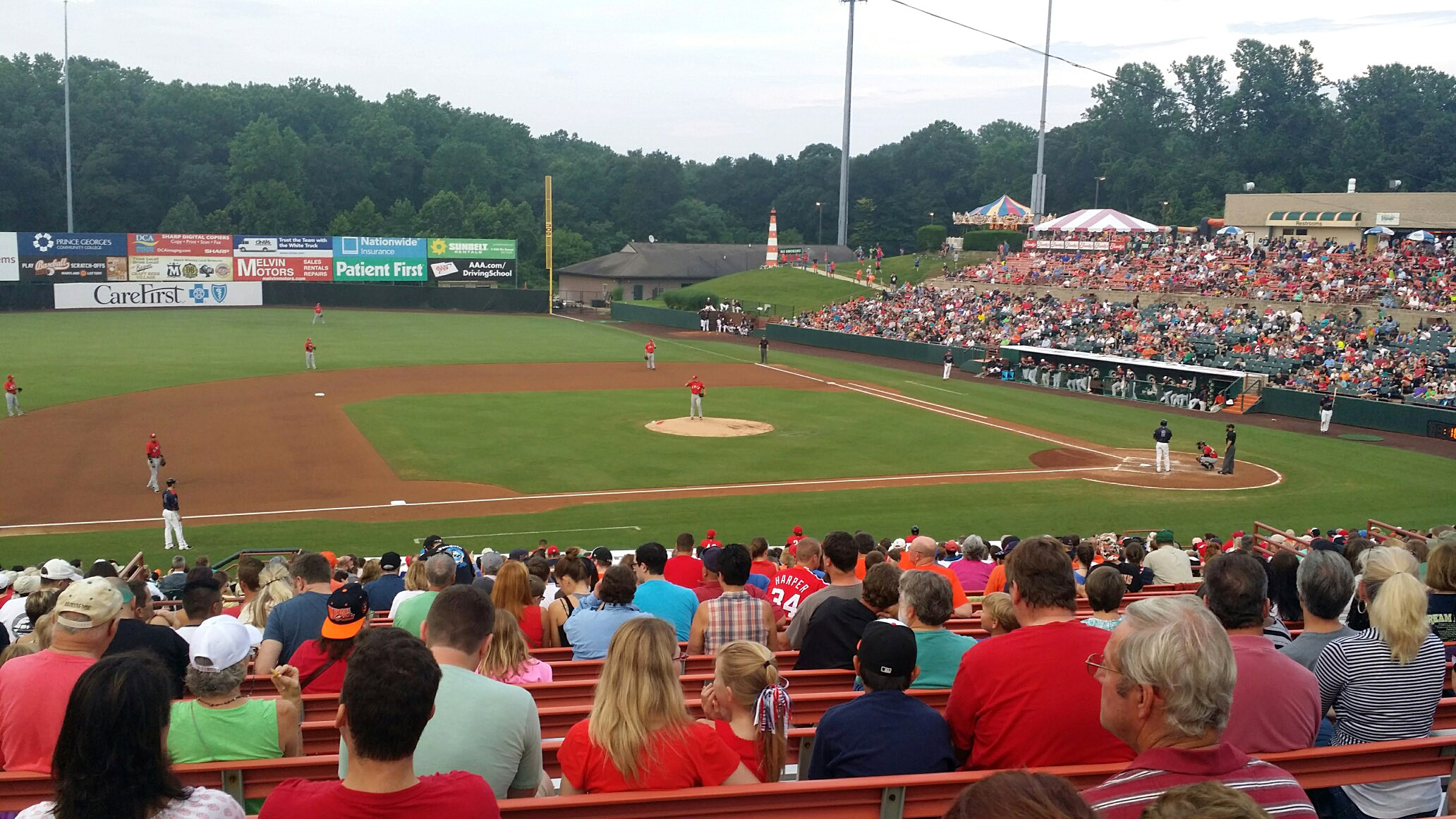
The coronavirus hit when area minor league baseball teams saw their season arrive in the on-deck circle. Right now they can’t do anything more than wait and hope for the best with everyone else.
The virus hit at a time when baseball was beginning to ramp up, on the field and off. Teams make the bulk of their money through sponsorships (which tend to get finalized in March) and ticket sales, beginning in April for teams in affiliated leagues, and May for independent teams.
“The month of March is a real big sponsorship month for us, where we basically finalize a lot of our deals,” said General Manager Brian Shallcross of the Bowie Baysox.
For now, Shallcross said, conversations remain positive, as everyone navigates the uncertainty. He added it helps most groups having sponsorship deals have worked with the organization for several years now.
“A lot of our dealings were with healthcare organizations and certainly their priorities are in other realms,” Shallcross said.
For now, even if deals with those groups haven’t been finalized, Shallcross said the Baysox have kept lines of communication open, offering to help in any way possible.
- Sign up for news alerts from WTOP
- Lawmakers to FEMA: DC area needs medical supplies now to fight coronavirus
- Giant Food to significantly limit customers in stores
- DC-area grocery stores adjust hours, set purchase limits
- Passover Seder amid coronavirus: Traditions, togetherness and tech tweaks
- Coronavirus test results in D.C., Maryland and Virginia
- Coronavirus FAQ: What you need to know
The season isn’t supposed to get underway for a few more weeks in Waldorf, but the Southern Maryland Blue Crabs had high hopes. Especially since they were going to host the Atlantic League All-Star Game in July.
Now, the only thing they’re confident about is the season won’t begin May 8.
“We didn’t even need to come to work for the last six months,” said Courtney Knichel, the general manager of the Blue Crabs. “Everything that we planned literally went out the window.”
The All-Star festivities meant “people were coming out of all kinds of woodworks,” Knichel said.
“Sponsors that hadn’t been with us for a couple of years, or new businesses that wanted to be with us. Folks that were buying season ticket plans just to get the All Star Game — things like that,” she added.
The good news is, so far the team hasn’t lost any sponsors or season-ticket plans. Knichel’s staff has worked out a few tentative deals that could be finalized once there’s more clarity about the future.
“People are hesitant to sign on to a new sponsorship deal not knowing whether or not there’s a) going to be a season, or b) how long that season is going to be,” said Knichel.
She said at least three local businesses appear to be “90% in to sign a new contract.
Both organizations said so far, they don’t need to lay off any full-time staff. Shallcross said the Baysox will reach out for some small business loans through the massive coronavirus relief bill Congress just passed.
Both organizations are trying to stay optimistic about what’s to come. However, Knichel has an added burden.
As an independent team without a Major League parent club, Knichel has to pay the Blue Crabs players, unlike the Baysox, whose Major League parent team, the Baltimore Orioles, will take care of that.
“This is so much bigger than us, and that’s what I keep thinking about,” said Knichel, who, unlike the Baysox, also has to pay the players who join the Southern Maryland squad. “I try not to get down in the dumps, and I just think about the day when we can open the gates.”
Shallcross is confident about the role baseball can play when that day comes.
“Baseball has always been a part of major recovery efforts,” he noted. “Any time the country has gotten into a rough spell, baseball has been a part of that and a place to come back to reality and be a diversion. Unfortunately, right now we can’t be that diversion.”






